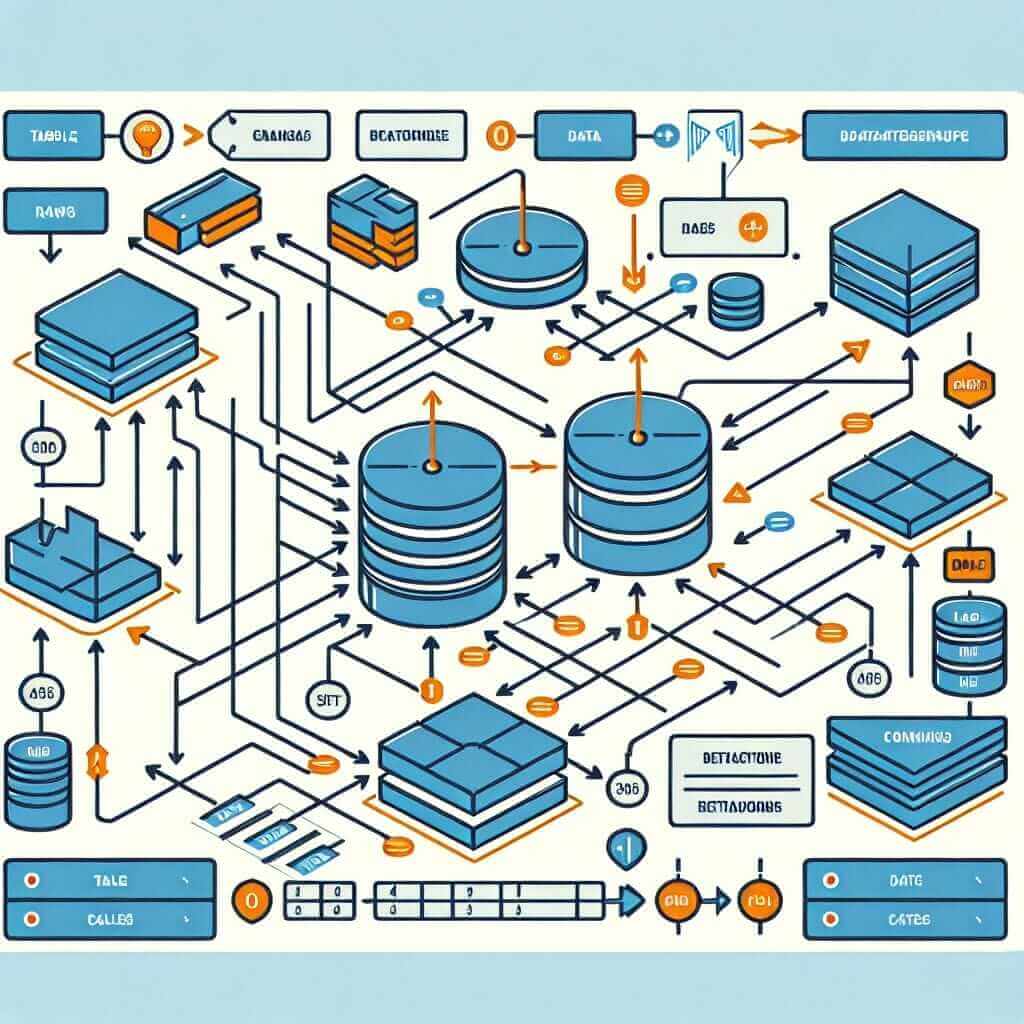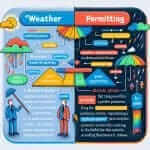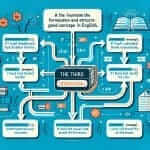The term “database” is frequently encountered in IELTS, especially in the Reading and Listening sections. This word holds particular significance in today’s digitally-driven world, emphasizing the importance of organized data storage and retrieval across various fields. Understanding its usage can significantly enhance your performance in the exam.
Synonyms: data bank, repository, information system, data store, registry
Antonyms: disarray, chaos, disorder
Phonetic transcription: /ˈdeɪ.tə.beɪs/
Part of speech: Noun
Definition: An organized collection of structured information, or data, typically stored electronically in a computer system.
Example: The company uses a database to store customer information.
Understanding “Database”
Definition and Usage
A database is essentially a structured collection of information. Think of it as a digital filing cabinet where information is organized for efficient retrieval and management. This information can range from customer details for businesses to scientific research data.
Pronunciation and Variations
The word “database” is pronounced with the stress on the first syllable: day-ta-base. Be mindful of the correct pronunciation during the Speaking test to demonstrate your fluency. Remember, clear articulation contributes to a higher score.
“Database” in IELTS
Listening Section
You might encounter “database” in lectures or conversations related to technology, business, or research. For instance, a lecture on data analysis might mention using a database to store and process information.
Example:
- “The research team compiled their findings in a comprehensive database, accessible to scientists worldwide.”
Reading Section
In Reading passages, “database” might appear in articles discussing data management, information technology, or specific industries reliant on data.
Example:
- “Modern businesses rely heavily on databases to manage customer relations, track inventory, and analyze sales trends.”
 Database Structure
Database Structure
Applying “Database” in Your IELTS Exam
Writing Task 1
While describing a process diagram related to data handling or information flow, you can use “database” to illustrate the storage and organization of information.
Example:
“The diagram illustrates the process of online library book borrowing. Once a user inputs their search criteria, the system accesses the library database to retrieve relevant book information.”
Speaking Part 2
If you’re asked to describe a website or an app you frequently use, you can mention how it utilizes a database.
Example:
“One website I use regularly is Amazon. Their vast database of products makes online shopping incredibly convenient. You can find virtually anything, from books and electronics to clothing and groceries.”
Combining “Database” with Other Words
For a higher-level vocabulary range, try combining “database” with other words:
- Database Management System (DBMS): A software application for creating, maintaining, and accessing a database.
- Relational Database: A type of database that organizes information into tables with rows and columns.
- Cloud Database: A database hosted on a cloud computing platform, offering scalability and flexibility.
- Data Mining: The process of extracting useful information from large databases.
Idioms and Expressions
While there are no direct idioms using “database,” consider these related phrases:
- A wealth of information: Indicates a large and valuable collection of data, similar to a comprehensive database.
- Data-driven decision making: Emphasizes the reliance on data analysis and insights for making informed choices, often involving databases.
Conclusion
Mastering vocabulary related to technology and data is essential for achieving a high score in the IELTS exam. “Database” is a prime example of a word you’re likely to encounter across various sections. By understanding its meaning, usage, and related concepts, you’ll be better equipped to understand complex texts, express yourself accurately, and demonstrate a broader vocabulary range. Remember to practice using “database” in context, and soon it will become a valuable asset in your IELTS vocabulary arsenal.


